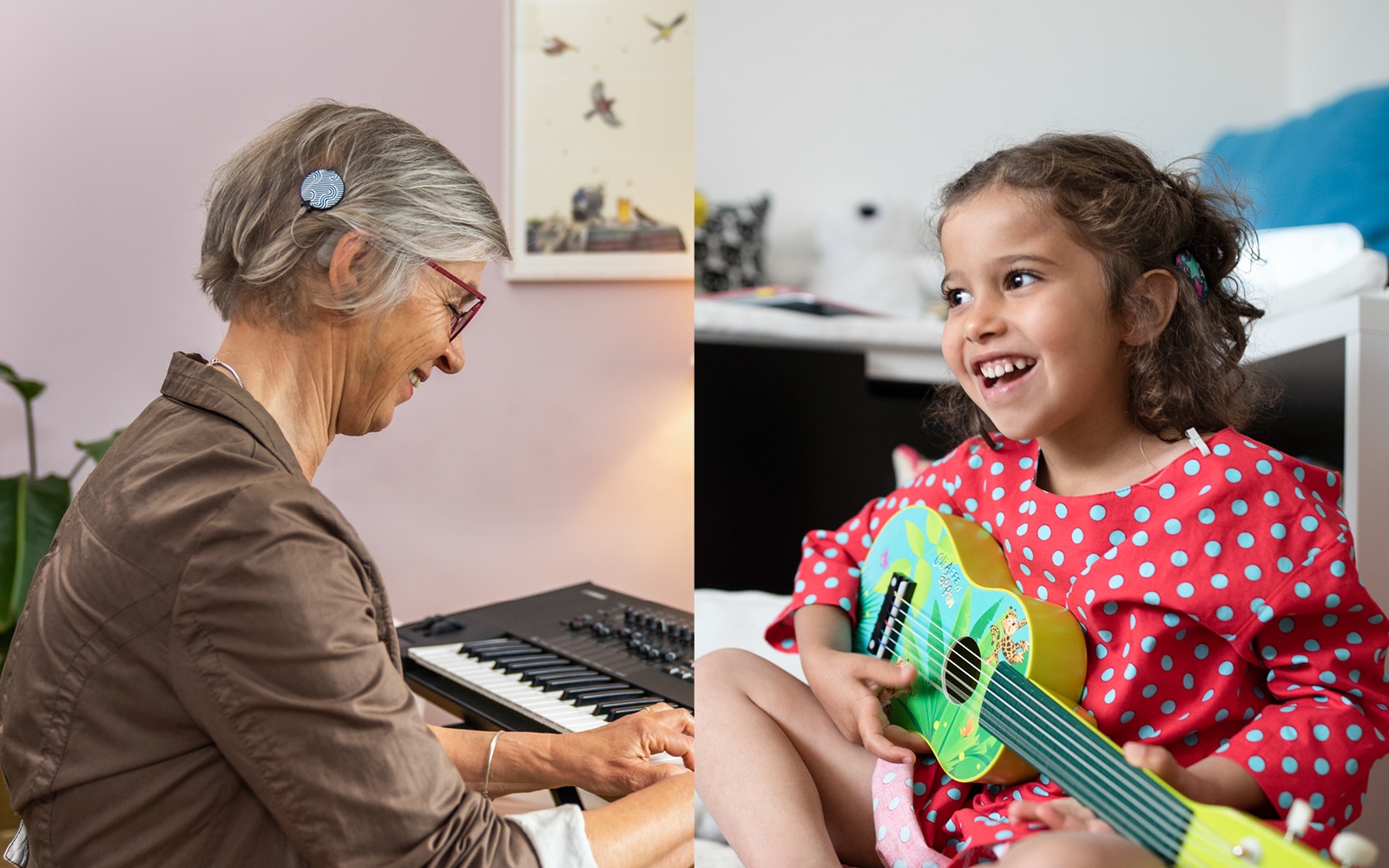
MED-EL
Published Jun 10, 2015 | May 01, 2024
Cochlear Implants: How Young is Too Young, How Old is Too Old?
Cochlear implants have become an increasingly common treatment for hearing loss, but it wasn’t always that way. In the 1990s, there were very strict requirements that would have excluded many of today’s recipients.

Today, there are a lot more people who fit the criteria for a cochlear implant. Many people wonder whether there’s such a thing as being too young—or too old—to receive a cochlear implant. So, what’s the answer?
How Young Is Too Young?
For a child born with profound hearing loss that can’t be treated by a hearing aid, studies show with overwhelming certainty that early identification and intervention—like cochlear implantation—are tied to better hearing and listening skills later in life.
During the first three years of life, children have so much to learn, and their brains grow and develop a lot. For a child who gets the appropriate intervention early on and grows up using a cochlear implant, this way of hearing will be their ”normal.”
Cochlear implants have advanced very far in the last few decades. Now, during hearing tests, the hearing of children with cochlear implants is compared to the hearing of children with normal hearing. Their hearing used to be compared to that of children with hearing loss and high-powered hearing aids.
Many studies have shown that children who receive cochlear implants before they turn two have significantly better hearing results than children implanted at an older age.
So, when’s the best time for a child to receive a cochlear implant? Ultimately, it comes down to the regulations where you live. But the general rule is the sooner, the better.
And for children whose hearing loss is progressive, it doesn’t matter if they’re two or ten or even older when they receive cochlear implants—as long as their hearing loss is treated in a timely manner.

How Old Is Too Old?
On the other side, someone who’s seventy, eighty, or even ninety years old might look at a cochlear implant and think they don’t qualify for one because of their age. But that couldn’t be further from the truth! Most age-related health issues won’t preclude someone from receiving a cochlear implant.
Many older adults have progressive hearing loss that develops over many years or even decades. And some older adults have sudden hearing loss as a result of disease, ototoxic medications, or trauma. Regardless of whether their hearing loss occurred gradually or suddenly, cochlear implantation can be an appropriate solution for older adults.
Just like younger cochlear implant recipients, older recipients can benefit from cochlear implantation and experience improvement in speech perception.
One of the biggest predictors of success with a cochlear implant is the duration of the hearing loss: early intervention is important because a shorter time span between hearing loss and treatment can lead to better results. Find out about 10 factors that influence hearing with a cochlear implant.
And cochlear implantation helps with more than just speech: cochlear implants can also make it possible to enjoy music. MED-EL cochlear implants bring recipients closest to natural hearing, making it possible to perceive and appreciate music, thereby improving quality of life.
Get in touch!
Have a question about MED-EL and our hearing solutions? Just get in touch with us here.
Click hereReferences
-
[1]
Ching, T.Y., Dillon, H., Leigh, G., & Cupples, L. (2018). Learning from the longitudinal outcomes of children with hearing impairment (LOCHI) study: summary of 5-year findings and implications. International Journal of Audiology, 57(2), S105-S111.
-
[2]
Christiane Völter, Lisa Götze, Imme Haubitz, Stefan Dazert & Jan Peter Thomas (2020) Benefits of Cochlear Implantation in Middle-Aged and Older Adults, Clinical Interventions in Aging, 1555-1568, DOI: 10.2147/CIA.S255363
References

MED-EL
Was this article helpful?
Thanks for your feedback.
Sign up for newsletter below for more.
Thanks for your feedback.
Please leave your message below.
Thanks for your message. We will reply as soon as possible.
Send us a message
Field is required
John Doe
Field is required
name@mail.com
Field is required
What do you think?
© MED-EL Medical Electronics. All rights reserved. The content on this website is for general informational purposes only and should not be taken as medical advice. Contact your doctor or hearing specialist to learn what type of hearing solution suits your specific needs. Not all products, features, or indications are approved in all countries.
Muhammad Younis
May 01, 2024
Hi, Muhammad Younis here from Pakistan. My daughter diagnosed from profound hearing loss and she received cochlear implant’s in the age of 5, but unfortunately her device got broken after 5 months now please let me know how to overcome this issue because device isn’t working now. I’ll look forward to hearing from you. Thanks & Kind Regards
MED-EL
May 02, 2024
Hi Muhammad, thanks for contacting us. We recommend getting in touch with your local MED-EL team directly via this form: https://www.medel.com/en-pk/#contact They can assist you with information on financial aid as well as inform you about your options. All the best, Gordana

MED-EL

MED-EL

.png)



Conversation
1 Comment